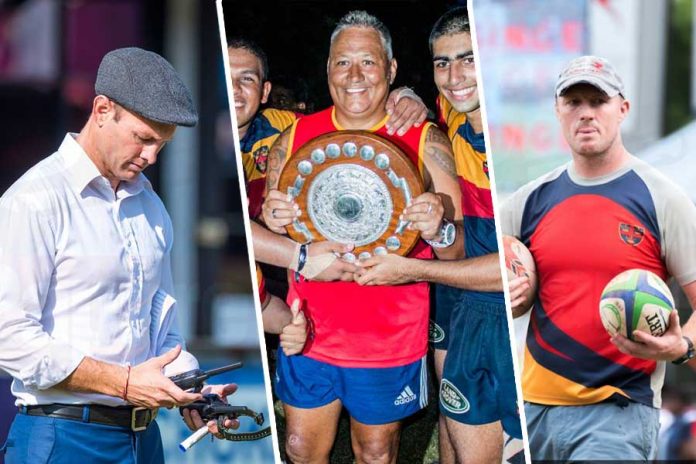A historical overview of ‘foreign coaches’ in Sri Lanka as Trinity hunt for their own, Sir Graham Henry.
Coaching in Sri Lanka, let alone schools first fifteen rugby is a tough gig. In a dog eat dog competition, it’s certainly more than just a job. It is high profile and a high stakes game which comes with the territory. It sounds as if it’s meant to be the role of a Democratic senator with a Republican agenda. It is, at times.
A difficult job where the graveyard is full of identities of various personalities from interesting corners of the globe. It is at times, unforgiving and not for the faint-hearted. We recommend that the candidate incumbent take a mandatory psyche test and be of a certain personality profile before signing on the dotted line.
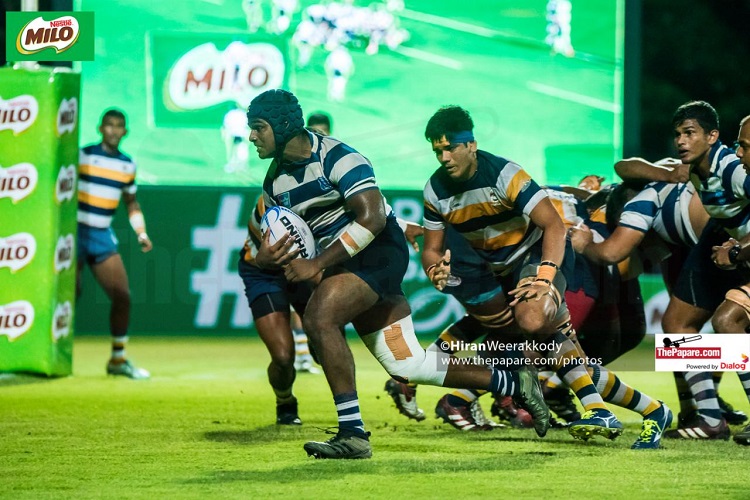
It’s difficult because you are seen as the savior and expected to fix a muddled mechanism and deliver results overnight. It’s a double take when you are a full-time overseas professional. It’s double the pressure.
A clash of “local values” of what accountability and process has often been the Achilles heel. That being said, what the current status quo is willing to admit and rectify, of what needs to be ironed out. Accepting that there is an issue is the start of addressing it. After all, it is the very reason why overseas pros are sought where local pro-ams have failed or something along those lines.
You might also like: Petes of MILO conquer the bull in Joes
It is not unique to rugby and rugby alone. A matter of fact which has plagued the island nation, which has been well documented over the decades. Facebook and YouTube have simply accelerated the awareness.
Even the most high profile of sports teams in Sri Lanka, it’s cricketing setup, has gobbled up many an unsuspecting “coach”. The list is long. It’s an almost mouse trap for where the cheese is the big bucks on offer but the spring mechanism is swift and often brutal. We all know what happens to the mouse who got caught in the trap. This is based on the belief that the foreign coach has the nous and skills to deliver a better product with superior results as the locals aren’t good enough to do the business.
Navigating through all this and delivering the perfect record is a prerequisite to sustainability. Mostly. For at times it can be as challenging, like at the electoral college. We will examine some who truly stood the test of time and others who were fly by nighters.
Moreover, with the political pawnbroking and everyone wanting in on the front-page photograph, fending off a multitude of advice from alumni and parents alike, any successful coach would tell you, it was more than just game management of a playing squad, both on and off the field. If anything, more off the field than on it.
Also, a brief look into the historical trends and coaching “graveyard” where the tombstones of many lay with their own story and eulogy carved in stone. Etched in this interesting historical chronicle, from which the present and future crop can learn or understand the intricacies.
More from Boa Athu;
- Top five coaches and coach of the year 2018
- Saints of Colombo and MILO of Croton
- Saints and Mavericks march on to semis
- The Technical Knockout
As the stakes got higher and the attraction to rugby grew in stature, especially at the turn of the millennium, Royal College led the way in innovating and deploying a full-time overseas coach. Who else but the school which has produced more cabinet ministers in the beautiful island nation than any other institutions.
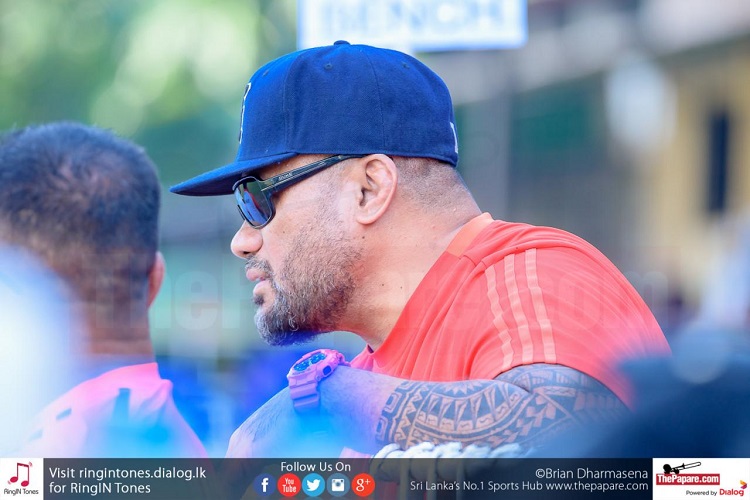
A fully paid professional in Tavita Tulagese, fondly known as Laga (alias ‘Tulanga’ in Auckland NZ) came into overseeing a spectacular and record-breaking two thousand and two season. His cares drubbed Trinity eighty three-nil in both legs– setting a record by some distance. (Bradby shield encounters)
That in black and white is the benchmark almost everyone seeks. Maybe, at the current level of competition, it isn’t possible. Although, every passionate fan and administrator, believes it is.
Laga, first arrived in SL and played/coached CR and FC and then transitioning into full-time coaching. Royal was the obvious choice as budgets and their rugby economy allowed for a suitable wage. After all, they are the forefathers of economical mastery in its greatest tradition. In Sri Lanka at least.
Trinity and their Goodwill hunting
As far as recruiting non-locals to coach their first fifteen, Trinity college Kandy is the true industry leader. In an almost obsessive pattern, of late, chasing high profile, high-value signatures have by and large produced disappointing results. They lead the tombstones in that graveyard we alluded to before.
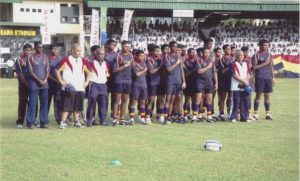
Trinity and their current hunt have begun in earnest. Thus far it’s been like the apprentice over the last three seasons. Where people have been hired and then promptly fired. Chuck Sekeres, ones said, “Hire slowly and fire quickly”. They hire quickly and then fire even quicker.
Nigel Krone, a kiwi who coached Bay Roskill in Auckland was their first such professional. He had terrific success in his first two seasons of 05 and 06–exited after-2007.
Neil Foote, another Kiwi, and proud Maori, fondly known as “Foot-e” was easily the most successful not only at Trinity but all schools to date. Winning four Bradby shields back to back from 2011 to 2014, departing under what were “familiar” circumstances. A common denominator with almost every single foreigner who coached in Sri Lanka.
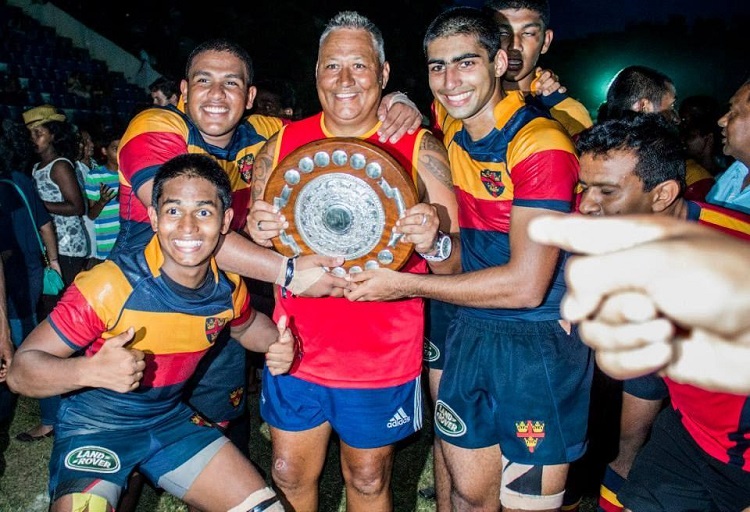
Start like a house on fire and then when the slightest hint of any rut setting in, you’re out the window. The level of accountability is so high that it’s fair to say, that being a rugby coach in the current SINGER league is a tougher occupation than what most CEO’s, politicians and Chairman of a board can expect. The slightest dip and chances are, it’s curtains. Eventually.
Trinity chronology
2005-6-7 – Nigel Krone: New Zealand National had a great season in 05 and 06; exited after a wayward 07 season.
2010 – Martin Jones: Survived one season and ceased of his services with less than mediocre results. Ties severed after the season proper.
2011 – 2014 – Neil Foote: The most successful coach in Trinity history of the recent era. Re-built the Trinity structure. A near league title in 2012. Second place in 2014. Third in 2011 and 2013. 1st President’s Trophy title in 2011 and four back to back Bradby victories during all years in charge. A record for any Bradby coach.
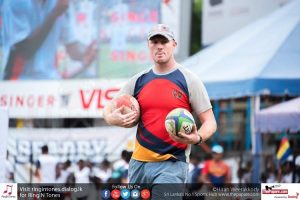
2015-2016 – Eric Miller. Irish national and former British& Irish Lion. High profile indeed. Fired before the second leg of the Bradby in 2016 after a disappointing stint in the schools season.
2017-2018 – Lote Raikabula – 2017 – 3rd place finish.
2018 – Fired before the end of the season. A highly rated NZ sevens rep but did and could not deliver as a coach. Replaced by Inthi Marrikkar as caretaker coach.
The “others” in a league of extraordinary gentlemen
Several other schools have tried and tested the waters of using foreign coaches for their local affairs. Some more successful than others and that applies to both the coach and school alike.
The early settler and pioneer like Captain James Cook did with Australia was “Laga” Tevita Tulagese. As mentioned he swiftly moved from professional player to coach in no time back in 2001. His partnership with Royal College brought immediate results before parting ways after two very successful seasons.
One of the main reasons was his unique training methods and tactical nous. In the current context it is all bread and butter but at that point in time, since most locals never knew any better, it proved an instant success like two-minute noodles. It was a Silver bullet for doing the basics right and having fun whilst doing it.
2006- Pa Enari. A New Zealand local with a mixed season with a Bradby loss for Royal saw to his end.
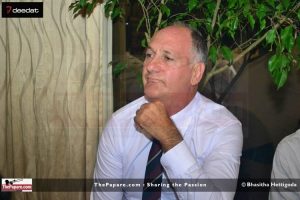
2009- Theo Serafim, another Kiwi who oversaw tremendous success with the Royalists, winning multiple Bradbys until his dramatic departure in 2011, on the eve of the Bradby first leg. A clash of ideologies and that good old nugget, foreign coach for local affairs raised its head. It obviously then came to a head.
His exit is probably the most extreme and high-profile story of this historical narrative. Without speculating too much, we can safely say a clash of ideologies led to a parting of terms.
2011- Australian Grant Dwyer took over the reins at S Thomas’ Mt Lavinia.
Took on the coaching in 2012 after their drop in the previous season, where they were demoted. In 2012 after relegation, they finished 3rd, only behind Dharmaraja and Wesley who were both competitive sides.
In 2013, the team under Devin Jayasinghe won all of their traditional trophies including against Royal, Trinity and St Peter’s.
2013- South African Johan Taylor and Royal College. Moving on or rather, moved on under pressure, he struck gold with Kandy SC which saw good calibration in him. Royal, obviously didn’t.
2013- The ex-Royal coach Theo Serafim makes another entry into the local market with St Anthony’s Katugasthota. Overseeing a season in charge and departs.
2014–Former Scottish international and NRL star Ben McDougall took over the reins at St Peter’s. Prior to his engagement, he had a successful stint with Army SC in the local club scene. Started with a bang by winning the sevens. He had arguably one of the most turbulent and topsy-turvy tenures. His departure has been well documented, just google it. Eventually moving away from professional sports coaching, he now runs a successful hospitality venture.
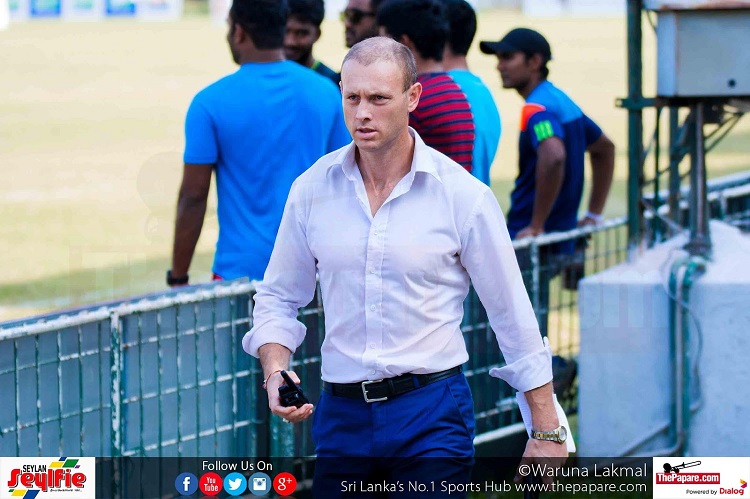
2017 to current – Paul Toia, Wesley College. The current coach and director of rugby. He has had a profound impact on the school and continues his successful partnership. Shown plenty of spark and potential but yet to deliver an absolutely stunning result. Work in progress.
Politics and organizational culture
One key reason, most on this list have eventually fallen to an all too familiar fate is that of politics and cultural amalgamation. This can also be seen as inherent and inevitable interference from the status quo, struggling to accommodate change these agents bring with them. Politics have infiltrated almost every facet of human life, schoolboy rugby is no different.
For most of them, having worked or coached in different environments where change is seen as a friend as opposed to a foe.
If there was ever going to be two key ingredients which define Sri Lanka and organizational success, (which is a relative statement) it is always going to be the politics and the successful negotiation of it. An all too common narrative where eventually, working groups and administration, a motley crew of past alumni come to loggerheads with what is acceptable with their definition of change. That being committees and the coaches.
Committees by and large are volunteer bodies and like all human beings have affiliations and thought patterns. They, like the coaches they bring on board, are judged on results. That is completely understandable.
A well-documented exit was ex Peterite coach and former Australian born, NRL league star and Scottish rugby union test player Ben McDougal. Easily, the most credentialed person as a professional footballer turned coach, employed locally.
Conducting what we would call an interesting social experiment with Army SC at club level, where he basically built and operated a side with an interpreter on hand at every single moment of coaching. It was effective.
Having successfully steered his first school employer to a season-opening sevens championship in 2013, the changes were eventually too overwhelming and the clash of ideologies led to his departure.
Theo Serafim, another example where he successfully produced a stunning 2009 campaign only to abruptly resign on the eve of Bradby shield, the season after. Another acrimonious departure with Royal, where clearly his methods, might I add were very successful on paper, possibly, riled the powers that be.
Of course, the reason why we have dwelled into this historic sequence is to highlight some of the struggles which overseas coaches encounter with the local set up and requirements of accountability. It is certainly, not a case of nitpicking for pot shots. To truly understand the pleasures of anything, you need to endure those growing pains. Glossing over it won’t help anyone.
The former being a bugbear where most sport and almost all areas of life in the island nation pose questions.
Rule by committee
Most school sport, notably rugby, is run by administrative committees of Alumni or old boys as mentioned. You are hard-pressed to find professional and externally hired administrator in the current set up. Given that these committees are largely made up of former players, there is an automatic belief that they are equally good administrators as they were players. It is often a fallacy.
Naturally, as things evolve, they pose questions. Not many are willing to answer them or conveniently sidestep it. So our research suggests.
Therefore, long-term success and navigating the diplomatic ranks go part and parcel with being an astute coach cum politician. There is absolutely no denying that.
Therefore, without going into much further empirical evidence and data streams, let’s just say, that non- Sri Lankan coaches clearly need to be repatriated to the climate and culture they walk in to. This, for better long-term prospects. It’s a question of having the capacity and capability, not just in coaching but regional- emotional intelligence. A unique ability to understand and withstand emotional labor on native affairs and local narratives.
Just surviving it can be seen as a moral victory and success. After all, if schools are willing to shell out so much coin, it is very puzzling to see why examples such as who we have listed were inevitably “pushed” or even allow such situations arise. The corporate term for it is performance managed out of their roll.
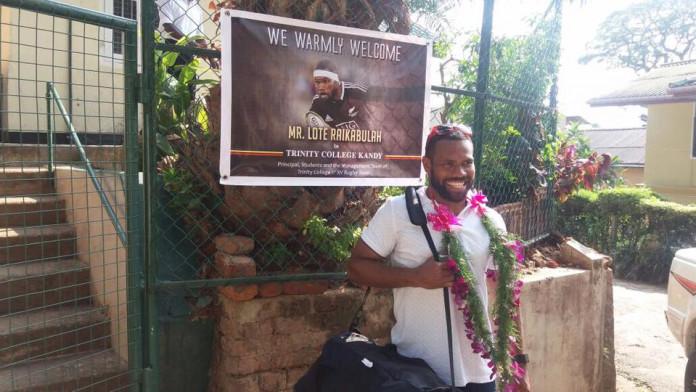
Trinity College Kandy, are in full pursuit of their next coach. It is yet another gripping episode as they look to bounce back from a very unsatisfactory season. That is, to put it mildly. Who will it be? Where will he or she be from? It could very well be another foreign coach for a very local affair in the hill country. The Paparazzi are waiting eagerly.

